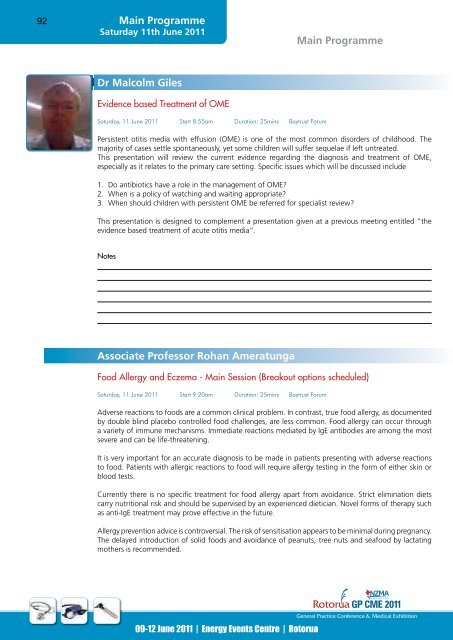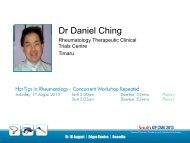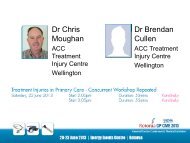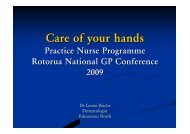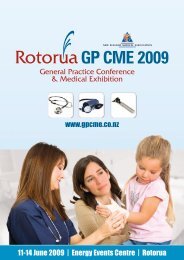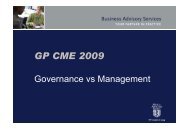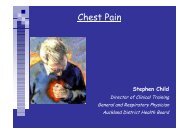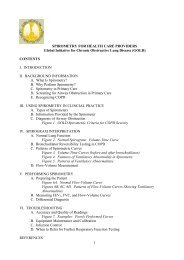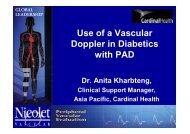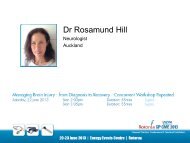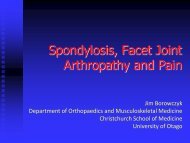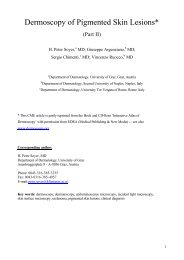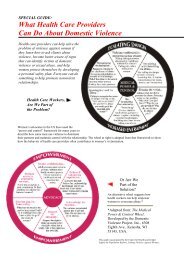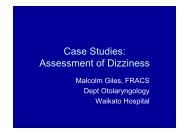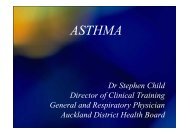DOWNLOAD GP CME 2010 PROCEEDINGS BOOKLET (18mb PDF)
DOWNLOAD GP CME 2010 PROCEEDINGS BOOKLET (18mb PDF)
DOWNLOAD GP CME 2010 PROCEEDINGS BOOKLET (18mb PDF)
Create successful ePaper yourself
Turn your PDF publications into a flip-book with our unique Google optimized e-Paper software.
92<br />
Main Programme<br />
Saturday 11th June 2011<br />
Main Programme<br />
Dr Malcolm Giles<br />
Evidence based Treatment of OME<br />
Saturday, 11 June 2011 Start 8:55am Duration: 25mins Baytrust Forum<br />
Persistent otitis media with effusion (OME) is one of the most common disorders of childhood. The<br />
majority of cases settle spontaneously, yet some children will suffer sequelae if left untreated.<br />
This presentation will review the current evidence regarding the diagnosis and treatment of OME,<br />
especially as it relates to the primary care setting. Specific issues which will be discussed include<br />
1.<br />
2.<br />
3.<br />
Do antibiotics have a role in the management of OME?<br />
When is a policy of watching and waiting appropriate?<br />
When should children with persistent OME be referred for specialist review?<br />
This presentation is designed to complement a presentation given at a previous meeting entitled “the<br />
evidence based treatment of acute otitis media”.<br />
Notes<br />
Associate Professor Rohan Ameratunga<br />
Food Allergy and Eczema - Main Session (Breakout options scheduled)<br />
Saturday, 11 June 2011 Start 9:20am Duration: 25mins Baytrust Forum<br />
Adverse reactions to foods are a common clinical problem. In contrast, true food allergy, as documented<br />
by double blind placebo controlled food challenges, are less common. Food allergy can occur through<br />
a variety of immune mechanisms. Immediate reactions mediated by IgE antibodies are among the most<br />
severe and can be life-threatening.<br />
It is very important for an accurate diagnosis to be made in patients presenting with adverse reactions<br />
to food. Patients with allergic reactions to food will require allergy testing in the form of either skin or<br />
blood tests.<br />
Currently there is no specific treatment for food allergy apart from avoidance. Strict elimination diets<br />
carry nutritional risk and should be supervised by an experienced dietician. Novel forms of therapy such<br />
as anti-IgE treatment may prove effective in the future.<br />
Allergy prevention advice is controversial. The risk of sensitisation appears to be minimal during pregnancy.<br />
The delayed introduction of solid foods and avoidance of peanuts, tree nuts and seafood by lactating<br />
mothers is recommended.<br />
09-12 June 2011 | Energy Events Centre | Rotorua


